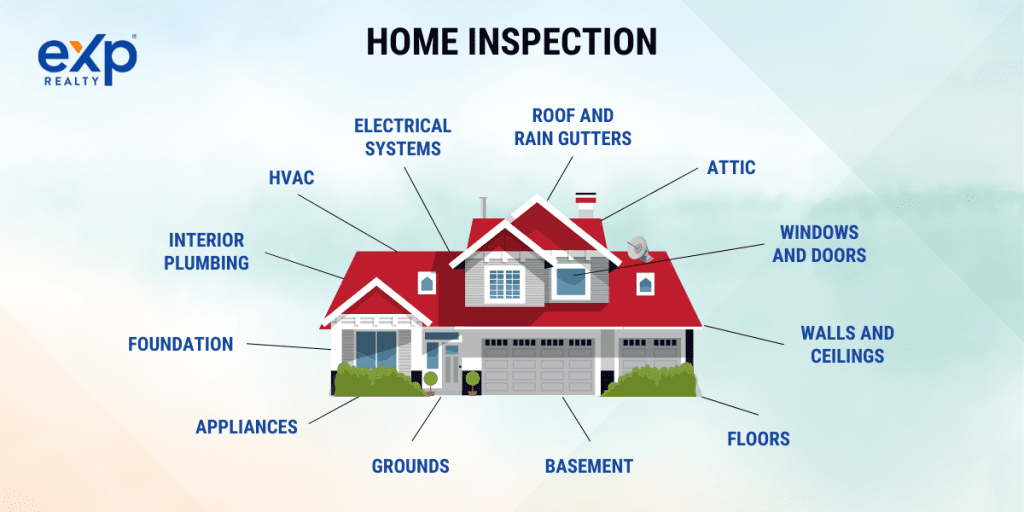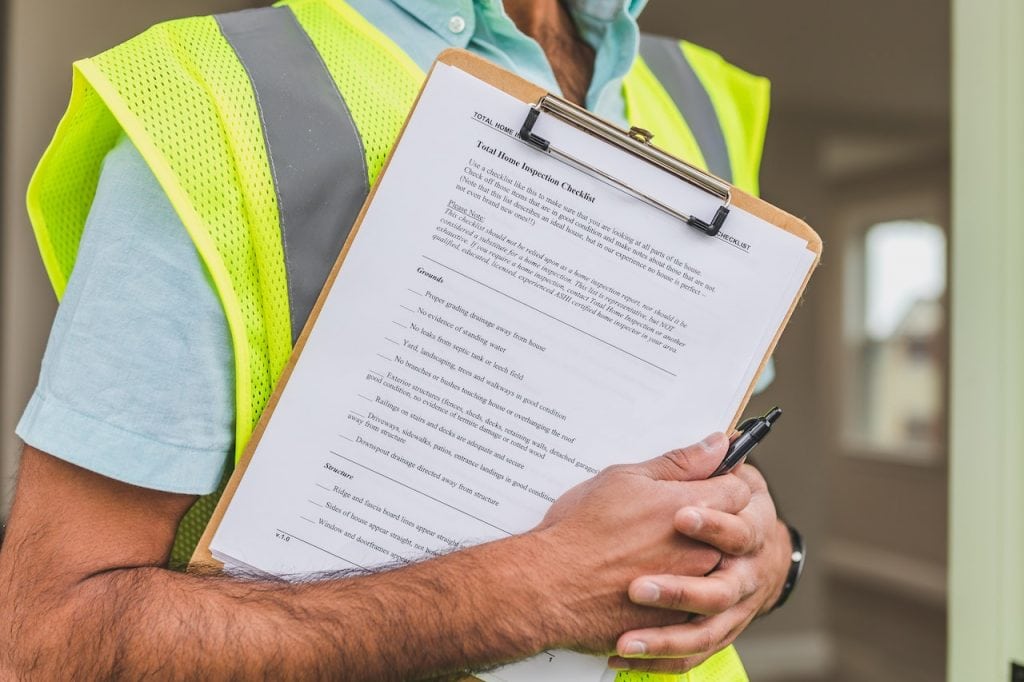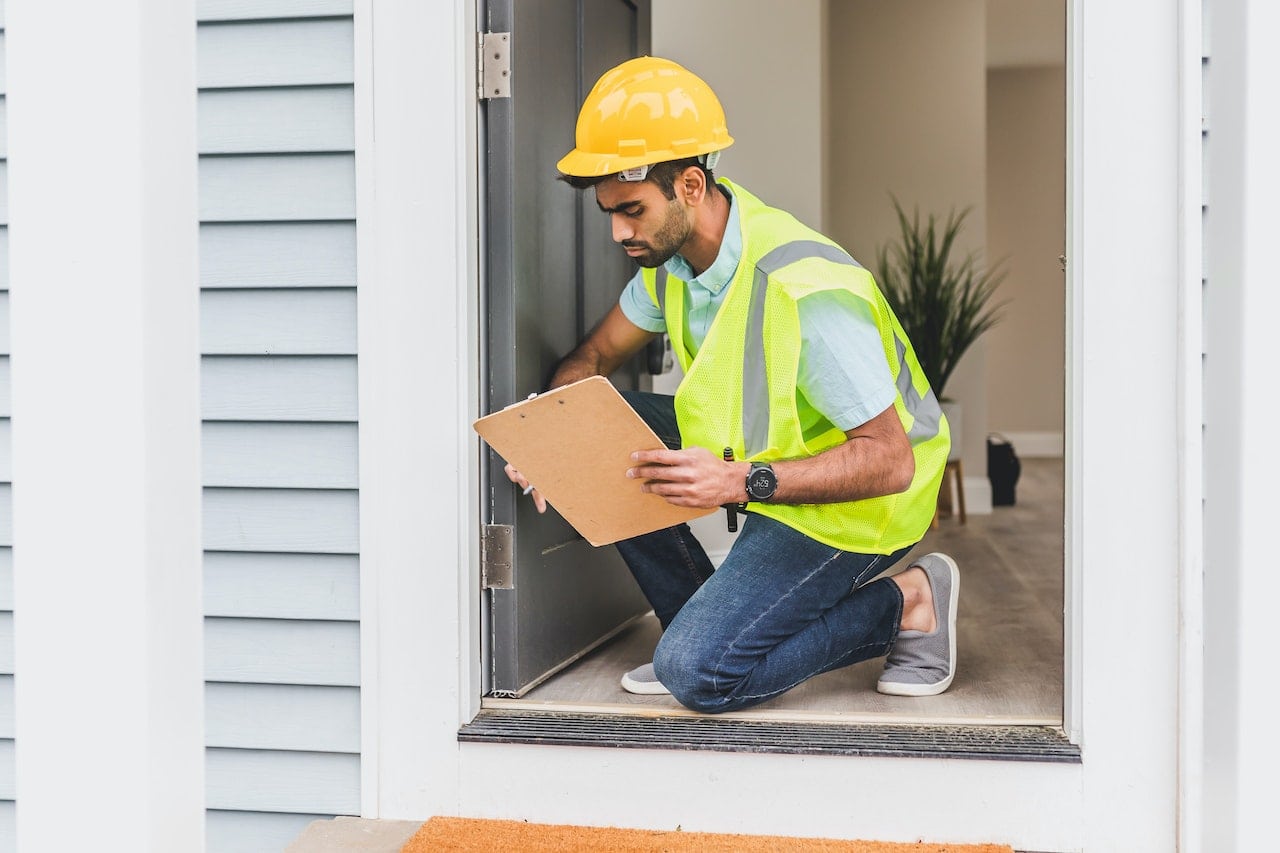First impressions of your dream home may initially blow you away, but if you look beneath the surface, you may find that your dream home is closer to a nightmare. This is the sole purpose of getting a home inspection. Waterfront real estate in Newport may have unseen structural issues from flood damage or homes for sale in Scottsdale could have a problem with central cooling from overuse. Regardless, the best way to walk into a new home with peace of mind is to get a home inspection.
What does a home inspection cover? What should you double check because an inspection doesn’t cover everything? Keep reading for the answers to these questions and more information on getting a home inspection.
What Is a Home Inspection?

A home inspection is an objective examination of the physical structure and systems of a home. The inspection of a single-family home typically takes 2-4 hours, and inspectors generally send the client a detailed report of what the home inspection covered within 48 hours.
The purpose of a home inspection is to ensure that the buyer goes into their closing paperwork with their eyes wide open. Sometimes, a home inspection is a contingency in the purchase agreement, and even if it isn’t, we highly recommend always having one completed. Home inspectors provide an unbiased and professional assessment of your potential home and keep stingy sellers from pulling the wool over your eyes.
What Does the Home Inspection Cover?

There is a designated checklist of what certified home inspectors will check for, according to the American Society of Home Inspectors (ASHI).
HVAC and Other Heating Systems
Not only is the HVAC (heating, ventilation, and air conditioning) a crucial component in living comfortably in your home, but it can easily cause a number of safety issues and financial stressors if something is wrong with it. For this reason, a home inspector will check for signs of wear on your HVAC and ensure that air filters are clean.
In addition to the HVAC, a home inspection will also cover the fireplace (if your home has one) and check to make sure the chimney doesn’t have any open seams.
Interior Plumbing
While you may decide to get a more in-depth inspection for your plumbing, a home inspection covers general wear and tear, safety, and function of your indoor plumbing systems. One of the biggest systems a home inspector will check is the water heater, ensuring that it’s the right size, free of damage, and properly vented and producing hot water. If you have a well on your property, a home inspector will test the well water too.
Electrical Systems
Similar to the HVAC system, electrical problems in your home can not only be annoying, but they can also be dangerous. To avoid a fire hazard or other safety issues, home inspectors will look at visible wiring throughout the home, making sure there are no exposed splices or unsecured cables that can cause future issues. In addition, the home inspector will check for any damage or inconsistencies in outlets, fans, circuit breakers, and light fixtures.
Roof and Rain Gutters
Roof problems can take a home from comfy to unlivable in a matter of seconds, especially if you live in an area with a lot of rain or snowfall. Home inspections cover basic roof and gutter integrity, checking for leaks, damage, ventilation, and proper gutter drainage. If the home has a chimney, a home inspector will look at the structural soundness of the chimney as well.
Attic
If the roof had any sort of damage, the next place the inspector will likely find issues with is the attic. Regardless of roof damage, a home inspector will search for leaks or moisture in the attic, along with insulation and ventilation issues. While a home inspection does not cover a full pest inspection, they will check for any obvious pests in the attic as well.
Walls and Ceilings
While a small crack in a ceiling or wall may not seem like a big deal now, it can become an expensive and annoying issue in the future, depending on what’s causing it. A home inspector will check for obvious cracks or leaks, and they will ensure that walls and ceilings are leveled. In addition, a home inspector will report if any of the home’s paint, wall coverings, or trim isn’t in good condition; this is always noted as a cosmetic issue, not a safety one.
Floors
The floor inspection is similar to the ceiling and wall inspection; the inspector will check for large and obvious issues, but will likely note any big cosmetic problems as well. Along with looking for cracks or leaks in the floor, inspectors will search for insulation issues, major gaps in flooring, and excess moisture beneath the house.
Windows and Doors
Windows and doors serve an obvious daily purpose, but a problem with them can cause major safety issues, which is why they are included in a home inspection. A home inspector will take note of any broken glass, faulty hinges, and windows and doors that won’t properly latch. Windows that have received the “landlord special” (AKA have been painted shut) are considered a major safety hazard, as windows are used as fire escapes in a home, so inspectors will include that information in their final report.
Foundation
In a home inspection, the foundation of the home is one of the most important parts of their report. After determining the type of foundation a house has, the inspector will check for cracks, structural bowing, alignment problems, and other issues. Foundational issues are often some of the most expensive to fix, and they have the biggest impact on the rest of your home, so it’s best to catch them early and avoid the financial burden.
Basement
If there is a basement, a home inspector will ensure that there are no issues with the foundation, ceiling, walls, and floors. One of the most common issues that home inspectors find in basements is undiscovered water damage or insulation issues that have gone unchecked for too long. Similar to an attic inspection, home inspectors will also take note of obvious pests in the basement, but may recommend a full pest inspection if you live in an area where housing pests are common.
Grounds
Home inspectors also search the outside of the property for obvious signs of damage or wear. This includes septic leaks, large cracks or potholes in the driveway, fencing, and sidewalk damage.
Appliances
A home inspection also covers both free-standing and built-in appliances, such as a stove, microwave, refrigerator, washer, dryer, and dishwasher. Appliances are checked for proper functioning and safety.
What Do Home Inspections Miss?
While a general home inspection covers a lot of factors, it may only scratch the surface of certain issues. For example, your home inspector may discover a number of squirrels in the attic of a home, but you may not realize until you get a full pest inspection that you have a termite problem as well.
The following is a list of common home issues that need to be addressed by specific home inspectors, especially if one of these things was initially noted by your general inspector. While having additional inspectors come into the picture may cost a little more upfront, it can save you a lot of time and money in the long run.
- Pest Control
- Alarm Systems
- Swimming Pools
- Detached Structures
- Asbestos
- Radon Gas
- Indoor Air Quality
- Lead Paint
- Toxic Mold
FAQs About Home Inspections

What Are the Most Common Issues Found in a Home Inspection?
The most common problems found after a general home inspection are plumbing and electrical problems, undiscovered water intrusion, structural damage, and evidence of large pests. If you are selling your home, it may be worth your while to double check these factors to the best of your ability before putting it on the market.
What Is A Deal Breaker in a Home Inspection?
A home inspection deal breaker is a report finding that causes a home buyer to change their mind on the purchase of a home. Common deal breakers from home inspections include structural or roof damage, aged-out plumbing or mechanical systems, and environmental problems like mold, asbestos, or lead-based paint.
In some cases, the seller is able to pay for the damages found and keep the deal going. However, in many cases, the home inspection causes a make or break decision for home buyers.
Is a Home Inspection the Same as a Home Appraisal?
No, a home inspection is not the same as an appraisal. A home inspection is simply a visual examination of the condition of a home, resulting in a detailed report of findings. A home appraisal considers the home’s condition, other home prices in the area, lot size, home features, school zones, crime rates, and other local information to assess the value of a home.
How Long Does a Buyer Have to Back Out After a Home Inspection?
If the offer you place on a home has a condition attached that requires a home inspection, you have a legal right as a buyer to back out of the deal if the report is not satisfactory.
This time period is called “due diligence” and usually comes with a $100+/- fee. The buyer and seller will agree upon an option period, giving a timeframe for the buyer to back out. If the buyer backs out within the option period, they are only out the option fee. However, if the buyer waits until after the due diligence period to back out, they’ll be out both the option fee and their earnest money.
How Long Does the Seller Have to Make Repairs?
In many cases, the buyer and seller of a home can come to an agreement on making specific repairs. The seller will typically have until the final walkthrough to make whatever repairs they agreed on with the buyer, but your real estate agent can negotiate on your behalf if you (the buyer) want repairs made before then.





